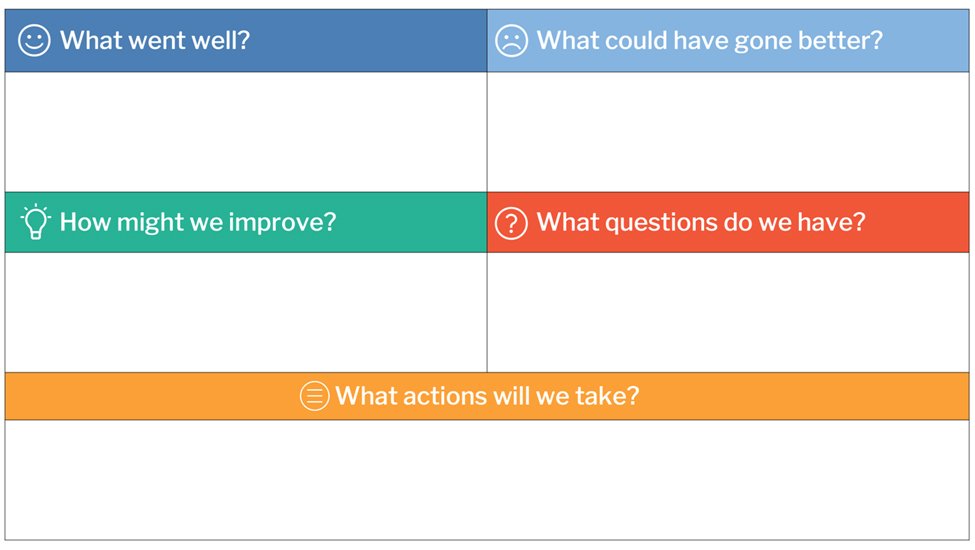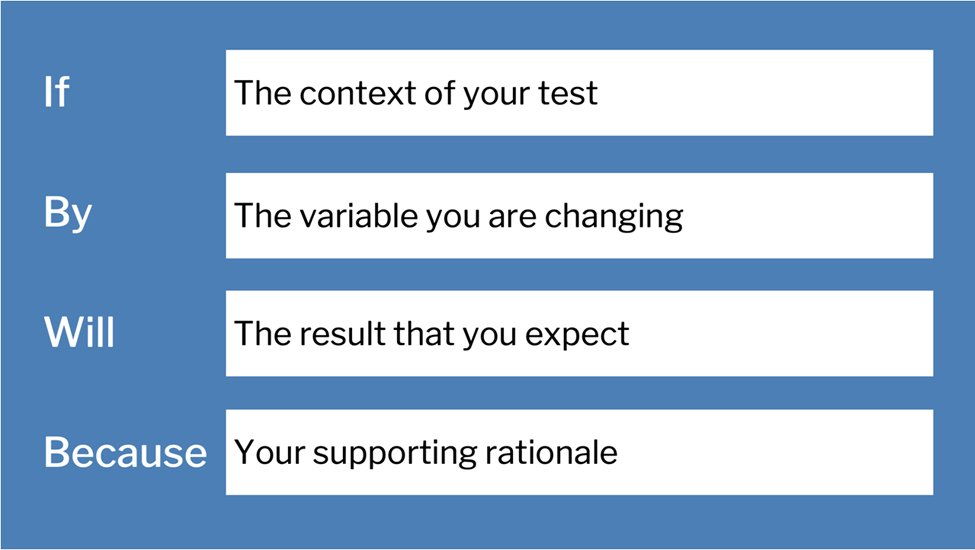
Retrospective Meeting
Look back at your last project or iteration as a team to identify opportunities for improvement.

What is the underlying assumption that we are testing to see if it is true?
Luca, M., Bazerman, M., “The Power of Experiments: Decision-Making in a Data-Driven World”, The MIT Press, 2020

Look back at your last project or iteration as a team to identify opportunities for improvement.

Compare the performance between two different versions of a marketing tactic for your next test.
This is a project from Kickframe – a digital marketing strategy consulting and training company.